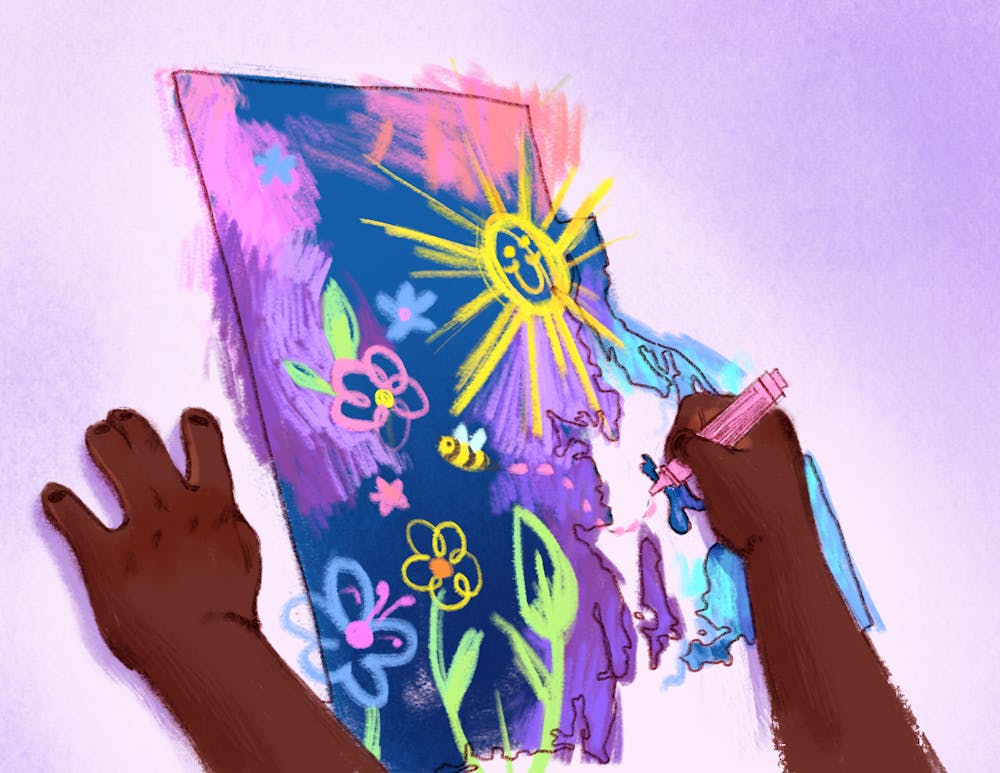The Rhode Island Department of Education presented its new proposal of readiness-based graduation requirements for public comment on March 7, which would expand the number of requirements to graduate high school in the state. Since then, state arts associations have opposed the proposal, claiming that it deprioritizes art education and puts the subject in an even more precarious position within school systems.
In an email to The Herald, Victor Morente, communications director for RIDE, explained that the purpose of the new requirements is to ensure that K-12 students are better prepared for admission into state colleges. “The goals of this effort are to prepare all of our graduates to create their own future by making sure they are participating in the course experiences that will graduate them career and college ready,” he wrote.
Under the proposal, students would be required to take two credits of both lab science and world language, in addition to currently required coursework in English and mathematics. The new rules would also require one additional credit of college preparatory coursework and necessary proficiency in civics, computer science and financial literacy. Finally, the proposal accounts for three more free credits, which “are presumed to include, but (are) not limited to the arts, computer science, physical education and health,” it reads.
The requirements also introduce the concept of “flex credits,” which allow students to incorporate, at minimum, two subject areas into one credit. The addition is meant “to increase real-world relevant learning for students,” according to the text of the proposal.
But the lack of a dedicated arts requirement in the new rules has caused groups such as the Rhode Island Music Education Association and the Rhode Island Art Education Association to oppose the plan. Activists for arts education in the state say that adding requirements that don’t include arts courses will decrease students’ available time for arts.
While Morente emphasized that the arts continue to be defined as a “core content area” within the revised proposal, a “standalone arts credit requirement is not currently a statewide graduation requirement,” he wrote.
In March, RIMEA launched a petition demanding that RIDE “prioritize arts education in its revision to new state graduation requirements.” The petition, which had more than 5,000 signatures at press time, requests that RIDE’s new rules include a minimum requirement of one full credit for art coursework and a clear definition of “arts proficiency.” Additionally, the petition asks for the abolition of flex credits.
In an op-ed in the Providence Journal, David Neves, RIMEA’s advocacy co-chair, wrote that by allowing students to take courses in which art is only one component as opposed to those which have students directly engage in the artistic process, flex credits could discourage classes which focus specifically on artistic practice.
Emma Hookway, president of RIMEA, told The Herald that there has been a long battle in the state to defend arts education. She said that RIMEA also fought to include arts education in RIDE’s Basic Educational Plan in 2018. The BEP is “the overarching set of regulations for the Rhode Island public education system,” according to RIDE’s website.
Hookway said the new proposal rejects the importance of art education and creates conditions that advance inequity across the state. She added that the proposal will give license to schools, even those with “appropriately funded (art) programs,” to cut the subject from their investments and curriculums. “Music is seen as that easy thing to chop because it's not testable, it's not on the SATs,” she said.
Susan Kolenda, president of the RIAEA, echoed Hookway's perspective on the importance of art, especially because the arts offer students a platform to express different abilities than those evaluated by standardized tests. “While standardized testing is beneficial in one capacity,” she said, art “embraces the notion that students are different.”
For Hookway, art education should be a crucial part of any student's formation because it is an essential part of humanity. “Music itself has been an integral part of every culture around the world since time immemorial … so we know it is an integral part of civilization,” she said, adding that deprioritizing music in education will lead to the loss of a part of the country's culture.
Morente wrote that “RIDE is not proposing any cuts or changes to arts education” through the new proposal, adding that the department hopes “to see the arts increase in our high schools through the creation of the flex credit which supports interdisciplinary academic experiences aligned to the passions of our kids.”
RIDE believes that “every young person should have the option to choose college and career after high school graduation,” Morente wrote.
But Hookway said the proposal diminishes the possibility of students pursuing college and career paths in the arts. “What does that do to a ninth grader who has now found this passion they want to devote their life to and we’ve got this power telling them it's not worth it? How much would that crush someone?” she said.
Hookway added that she worries that a lack of music prioritization for K-12 students will impact art at the university level. “We now have kids that are unprepared to go into a music program at universities,” she said, adding that fewer students enrolling in undergraduate arts will damage these programs.
Kolenda emphasized that learning the arts offers skills that are crucial for any career path. According to RIAEA's research, “students that take a combination of arts programs demonstrate improved reading and math skills (and) they show greater capacity for higher thinking skills such as analyzing and problem solving,” she said.
The COVID-19 pandemic has increased the importance of exposing students to art, Hookway said. “There is this palpable energy that transmits from musician to musician when they are performing together,” she said. “Especially in these years post-COVID-19 … students are starving for” connection.
RIDE will continue to hear public comments on the new graduation requirements until May 10, Morente wrote. The proposal “became the most commented upon set of regulations in the history of K-12 education in Rhode Island,” according to RIDE's website.
“The arts community as a whole … have all really teamed together to reiterate the importance of art in education,” Kolenda said.

Julia Vaz was the managing editor of newsroom and vice president on The Herald's 134th Editorial Board. Previously, she covered environment and crime & justice as a Metro editor. A concentrator in political science and modern culture and media, she loves watching Twilight (as a comedy) and casually dropping the fact she is from Brazil.





